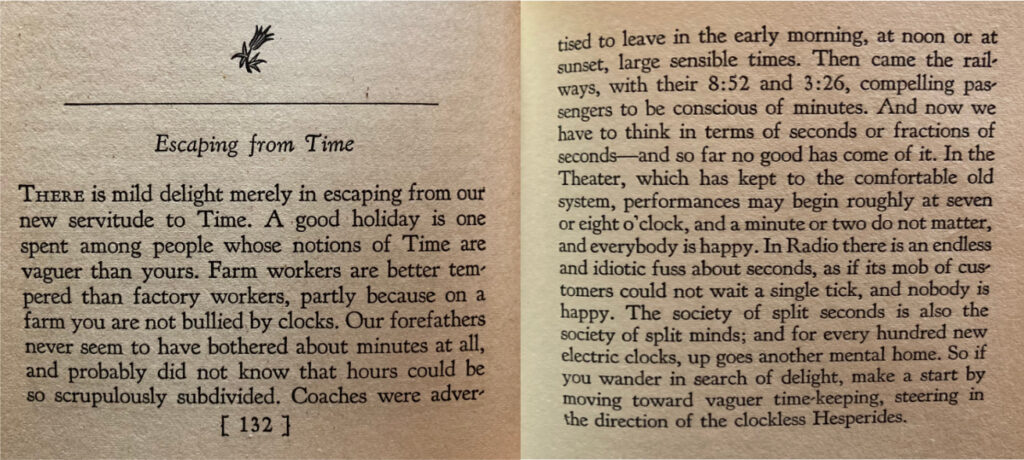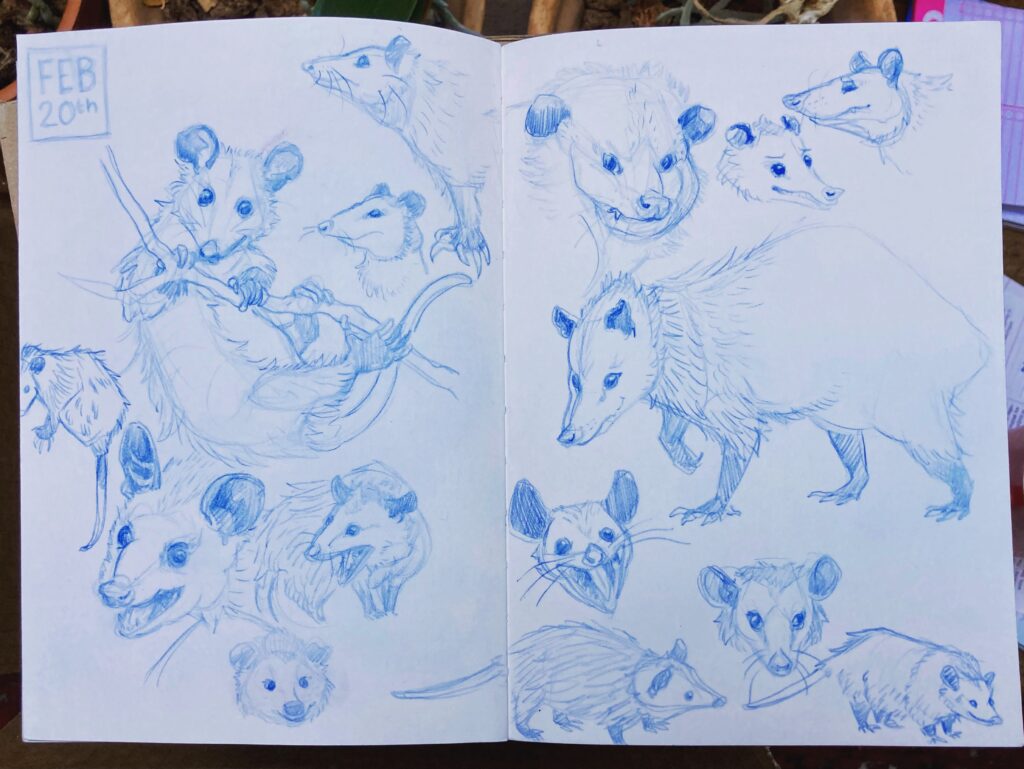I’ve heard a lot of variations on “I didn’t know what to say” when I’ve reconnected with people lately, or sometimes “I didn’t know whether you wanted to be contacted at all.” Going to ground online does often correspond with a desire to be left alone, and I suppose my social capacity has been greatly diminished of late, but I’ve really treasured the handful of emails or letters or texts that have arrived from folks just dropping in to share a little about what they’ve been up to, and to wish me well.
Anyway, I sent one of those kinds of emails to S. a couple weeks ago and we finally got to talk. It was such a nourishing and thought-provoking conversation that I wanted to jot down some of the things that stood out to me, just to refer back to down the line.
We talked about our shared resistance to the fixed nature of identity online, and how it might be driving an interest in disengaging from the broader landscape of social media. Neither of us are excited by spaces where it’s hard to be evolving or questioning right now.
At one point S. said “I’ve been circling the same star” in response to a bunch of thoughts I’d shared and I just love that expression!! WOW. It also makes me laugh because I’ve become quite wedded to the garden of metaphors I use to conceptualize my creative practice or talk about my life, and they’re all super terrestrial! Space Stuff isn’t in there at all! What a novel delight!
Just thinking a lot about how I organize my thinking in general these days. What are the guiding metaphors? What’s changed in my life and my creative work as I’ve started using seasons and maps and territory and wayfinding and murmurations as mental models? What might change if I tried on a different model?
Conceptual labor means asking “regardless of what I think I’m doing, what am I actually doing?” and then continuously refining your model of your labor — which includes the way you see the world — until it describes what you are actually doing. It only stops when it arrives at an internally-consistent model that has the power to describe new actions taken while subscribing to it. […] Conceptual labor is the process by which we fundamentally change our model of the world. The more fluent we are in how we practice conceptual labor in the areas that we have the power to control, whether it is poetry or politics, the more we will be able to critique the paradigms that control us.
(Of course Ním talks about the value of models in the Theory of Conceptual Labor.)
The other day B. said he felt illegible to most people—except his grandmother, who could probably read the most chapters of him out of anyone. I jolted, because Aud had just (three months ago, but mentally “just”) written me an email containing a similar metaphor: the far edge of a chapter in one’s life approaching over the horizon. In both instances: resonance.
What are the chapters of the book that is me? Which are the most legible? Which are the least? Are there whole sections written in cuneiform? Is there a folded letter tucked inside the dust jacket that falls out when you think there’s nothing more to read? Are there people I’ve stayed close to because I fear they are the only ones who will ever be able to read certain sections?
I blathered about my increasingly complex feelings around making art under capitalism for a while, talking a lot about what I didn’t want to do, until S. said “You’re not hurting capitalism—you’re hurting yourself.”
Then I blathered some more about my increasingly complex feelings around “getting it right” when I finally release my 100 Day Project from 2020, until S. said (with great gentleness) “What’s your relationship to repetition?” and I laughed, because I’d just blogged and tweeted about the fear of not having access to repetition as a right. Having to nail it on the first try. Never getting a second chance. So silly. 100 Demon Dialogues had been around in multiple different guises before it became a book. So had Baggywrinkles. Everything I’ve done, really.
Perhaps this is the dark side of making work that I keep secret—it raises the stakes when I finally decide to share.
(Another Ním Thing was this concept we came up with called The Permuta Triangle to describe the territory in one’s practice that gets circled around and re-hashed over and over throughout the course of a life. See also: the idea of growth as an upward spiral rather than a line. We’re going in circles, yes, but we’re moving UP. We traverse the same territory with greater and greater depth and perspective over time.)
Anyway, read your own damn tweets, Bellwood.
But the idea I wrote down in the biggest letters of all was
WEBSITE LIKE A NEWSPAPER
We’d been talking about the struggle to know where to file the muchness of what gets captured in our own blogs, plus the tendency to adopt different tones and personas across various platforms, when S. dropped this glorious, glittering thing. It makes so much sense to me.
Folks in my circles approach this issue in different ways. Lots of the people I enjoy following have at least some subdivision to their work, although the majority of it is still textual content. Robin has Notes and Essays. Mandy has Reading Notes and Essays. Justin has Quotes and Snippets and Words(!) and a bunch of other stuff. Mark has Books and Posts. I love all that.
What I find myself struggling with is the desire to bring the goofy visuals of Instagram, the fleeting thoughts of Twitter, the in-depth artwork process posts of Patreon, and the educational recordings of SoundCloud together under one roof. Oh yeah, and the essays from Medium. And the porthole videos from Tumblr. And the talks from YouTube. Maybe also playlists from Spotify and movie reviews from Letterboxd and…jeez there’s so much to all of this.
I’m different people everywhere.
But when S. talked about organizing a blog like a newspaper, my brain lit up. This is that Parts Integration shit I adore. Just think! I could treat these different online selves I’ve inhabited over the years as different columnists, each with their own op-ed. A newspaper has a page for classifieds where I can shove all my ads for stuff! Book reviews! Editorial illustrations! There’s a whole COMICS SECTION, fer chrissake.
I don’t know. Maybe this is all obvious. Maybe the electricity of it will dissipate tomorrow, but it does feel like one of those new metaphorical models that could be really helpful. If I can flag somehow that Classified Ad Lucy is taking the mic at the start of a post, maybe these parts can coexist more peacefully. It’s not so much about me building a whole new website from the ground up with headlines and bylines and everything else. It’s more about the way I think about inhabiting this space in my own brain.

